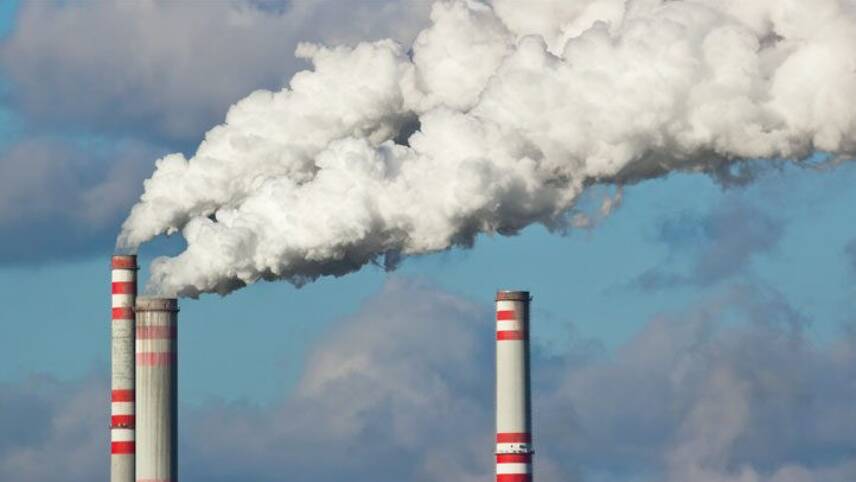Register for free and continue reading
Join our growing army of changemakers and get unlimited access to our premium content

CBAM aims to provide a level playing field for EU manufacturers who pay for carbon pollution permits under the bloc’s Emissions Trading Scheme but are exposed to competition from foreign firms who are subject to weaker environmental rules.
Under CBAM, foreign producers will have to pay the same carbon price as EU manufacturers, a move aimed at encouraging cleaner production abroad and preventing European industries from relocating.
“This Sunday, we will begin to implement a groundbreaking new tool that will eventually extend the same pricing principles as our Emissions Trading System to all carbon-intensive products imported into the EU,” said Paolo Gentiloni, the EU’s economy commissioner.
“CBAM will encourage industry worldwide to embrace greener technologies. It will also prevent so-called carbon leakage, or the relocation of production outside our borders to countries with lower environmental standards,” he said in a statement.
In the initial phase, CBAM will target the imports of six carbon-intensive industrial sectors – iron and steel, cement, fertilisers, aluminium, electricity generation and hydrogen.
As of 1 October, foreign firms in those sectors will have to collect emissions data and report them to a transitional registry hosted by the European Commission in order to continue exporting to Europe.
From 1 January 2026, importers of the six concerned product types will have to declare each year the quantity of goods imported into the EU in the preceding year, as well as their embedded carbon emissions.
Based on the reported data, they will then have to pay an “adjustment” fee to cover the carbon price gap between non-EU and EU products.
Implications for international trade
The consequences the scheme will have on international trade are not yet known, but the German chemical industry has already complained about “the bureaucratic madness” CBAM will create.
According to a new report by The Conference Board, a think tank and business membership organisation, CBAM is expected to increase the price of products imported into Europe and influence purchasing decisions, leading to potential consequences on global trade.
The direct cost of the carbon emissions fee and the added administrative cost from CBAM are likely to drive up the price of goods and services.
“Our Europe-based Members are clear that implementing CBAM will increase prices of carbon-intensive products, possibly with knock-on effects for consumers,” said Sara Murray, international managing director at The Conference Board.
Additionally, the report finds that the mechanism could also influence buying decisions, but the uncertain implications of CBAM on international trade make it difficult to assess its effects on buyers’ behaviour.
The new system could also prove to be a huge administrative burden for importers and non-EU producers, but also for the authorities of EU countries.
The implementation of CBAM will likely vary from country to country, as is the case with the Emissions Trading Scheme, where the approaches of National Competent Authorities can vary.
Different processing times in customs clearance and capacity for emissions verification among member states could also lead to bottlenecks in the process, the report warns.
“Without fast action to address the administrative problems that importers will begin to face from next week, there is a risk that CBAM acts as a drag on the European economy,” said Anuj Saush, European ESG Center Leader at The Conference Board.
The report also underlines potential complications arising from the importers’ and manufacturers’ obligation to share detailed information with national authorities – some of which might be confidential.
The following years will prove whether CBAM works as intended and is effective at protecting EU industrial sectors like steelmaking, which have complained about green dumping from places like China.
“The EU steel industry has been shouldering a CO2 price for several years while steel imports from third countries, which on average have a significantly higher CO2 footprint, have been exempted thus far,” said Axel Eggert, director general of Eurofer, the European steel association.
“We welcome the start of the CBAM test phase and expect that an effective carbon price will be introduced at the EU border in 2026 to level the playing field,” Eggert said in a statement.
European steelmakers have previously warned about CBAM, saying the simultaneous phase-out of free carbon pollution credits under the ETS will undermine their ability to compete with foreign producers.
Annita Elissaiou, EurActiv.com
This article first appeared on EurActiv.com, an edie content partner. It forms part of EURACTIV’s special report on nature restoration.


Please login or Register to leave a comment.